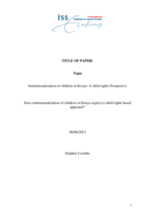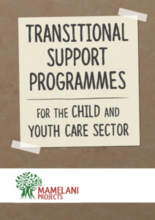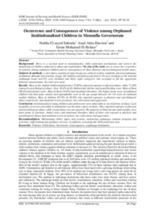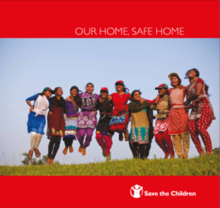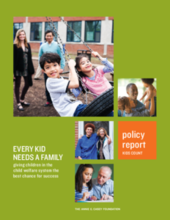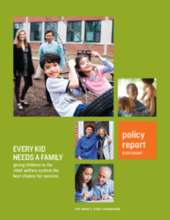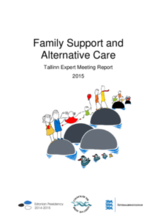Displaying 1071 - 1080 of 1482
This country care review includes the care related Concluding Observations adopted by the Committee on the Rights of the Child.
This essay examines institutional care not as a structure or facility, but as a model of care and protection for orphans and vulnerable children in Kenya.
In this executive summary, the Truth and Reconciliation Commission of Canada provides an introduction to the use of residential schools for aboriginal children in Canada, presents an overview of the Commission’s activities, describes the history and legacy of these residential schools, and outlines the challenges of reconciliation, including 94 recommendations, or “calls to action” for reconciliation in the field of Child Welfare among many others.
This booklet was developed by Mamelani Projects, a community development organisation in South Africa. The booklet outlines Mamelani’s approach to Youth Development and providing transitional support to young people as they transition out of Child and Youth Care Centres (CYCCs).
The aim of this study was to assess the occurrence of violence among orphaned children in institutions in Egypt and its consequences on their physical and psychological health status.
This rapid review of the literature on residential care for looked-after children in the UK aims to describe the use of residential care for children within the child welfare systems of England and other relevant countries; review the evidence on children’s outcomes from residential care; and review the quality of the evidence and identify gaps in the evidence base in order to inform future research priorities.
Our Home, Safe Home captures the moving stories of girls who have lived or are still living in the Save the Children supported Safe Home at Daulatdia, Bangladesh.
This KIDS COUNT policy report underscores the importance of family-based care and calls for limiting the role of residential treatment care for children in the US
This KIDS COUNT policy report highlights the benefits of family care for children and the need to prioritize family settings for all children in the child welfare system in the United States.
This report provides an overview of the two-day expert meeting on alternative care and family support in the Baltic Sea Region that took place in Tallinn, Estonia in May 2015.


